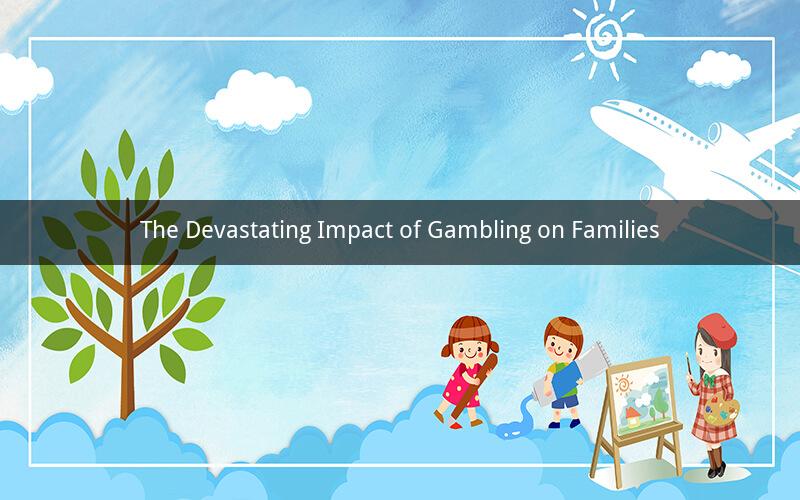
Gambling has long been a source of entertainment and excitement for many individuals. However, when it becomes an addiction, it can have a devastating impact on families. This article delves into the ways in which gambling ruins families, highlighting the emotional, financial, and psychological consequences that can arise from this destructive behavior.
Emotional Consequences
One of the most significant ways in which gambling ruins families is through the emotional turmoil it creates. When a family member becomes addicted to gambling, it can lead to feelings of betrayal, anger, and sadness among other family members. The addict may become distant, secretive, and even abusive, further damaging the family dynamic.
For children, the emotional impact of a gambling addict can be particularly devastating. They may experience feelings of guilt, shame, and confusion, as they struggle to understand why their loved one is acting in such a manner. The stress and anxiety that come with living in a home where gambling is present can have long-lasting effects on a child's mental health.
Financial Consequences
Gambling addiction can also have severe financial consequences for families. The addict may go to great lengths to fund their gambling habit, often leading to the depletion of family savings, credit card debt, and even borrowing money from friends and family. This financial strain can put immense pressure on the family unit, leading to arguments, stress, and even the breakdown of relationships.
In some cases, the financial burden of a gambling addiction can lead to the loss of the family home or other valuable assets. This can be devastating for both the addict and their family members, as it represents a significant loss of stability and security.
Psychological Consequences
The psychological consequences of a gambling addiction can be just as damaging as the emotional and financial impacts. The addict may experience symptoms of depression, anxiety, and paranoia, which can further isolate them from their family. In some cases, the addiction may even lead to thoughts of suicide, as the addict grapples with the consequences of their actions.
For family members, the psychological impact of living with a gambling addict can be equally devastating. They may experience feelings of helplessness, guilt, and despair, as they watch their loved one spiral out of control. The constant stress and anxiety that come with living in a home where gambling is present can lead to mental health issues for the family members as well.
How to Help a Family Affected by Gambling Addiction
Recognizing the signs of a gambling addiction is the first step in helping a family affected by this destructive behavior. If you suspect that a family member is struggling with a gambling addiction, here are some ways to offer support:
1. Educate yourself about gambling addiction: Understanding the nature of the addiction can help you better support your loved one and make informed decisions about how to help them.
2. Encourage them to seek professional help: A therapist or counselor specializing in gambling addiction can provide the necessary support and guidance for the addict to overcome their addiction.
3. Offer emotional support: Be there for your loved one during their recovery journey. Let them know that you care about them and are committed to helping them through this difficult time.
4. Set boundaries: It's important to set boundaries to protect yourself and your family from the negative consequences of the addiction. This may include limiting contact with the addict or establishing rules regarding the use of shared resources.
5. Seek support for yourself: It's also crucial to seek support for yourself, whether through counseling, support groups, or other forms of therapy. This can help you cope with the emotional and psychological impact of living with a gambling addict.
Frequently Asked Questions
1. What are the signs of a gambling addiction?
Signs of a gambling addiction include hiding gambling activities, borrowing money to fund gambling, lying about gambling habits, and experiencing feelings of guilt or shame after gambling.
2. How can I help my loved one who is struggling with a gambling addiction?
You can help by educating yourself about the addiction, encouraging them to seek professional help, offering emotional support, setting boundaries, and seeking support for yourself.
3. Can a gambling addiction be cured?
While there is no guaranteed cure for a gambling addiction, it can be treated and managed with the help of therapy, support groups, and other forms of treatment.
4. How can I support my child if they are affected by a family member's gambling addiction?
Supporting your child involves creating a safe and open environment for them to express their feelings, seeking professional help for both the child and the family, and providing emotional support.
5. Can a gambling addiction affect the entire family?
Yes, a gambling addiction can have a profound impact on the entire family, causing emotional, financial, and psychological distress. It's important for family members to seek support and resources to help them cope with the addiction.